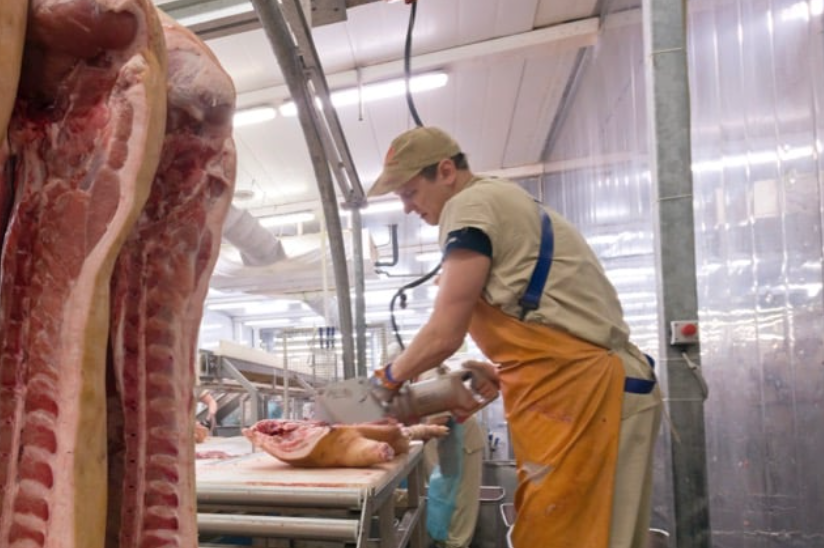The farm sector is being unfairly targeted as a result of changes that kicked in
last month to foreign worker rules, says the country’s meat sector.
And now, it wants the changes rolled back.
Last week, the national organizations representing the Canadian meat industry
issued a joint statement asking Ottawa to restore the Temporary Foreign Worker
Program’s Workforce Solution Roadmap, a two-year-old initiative designed to address
what the industry calls a “critical†labor shortage.
Temporary foreign workers have been key to helping address the shortage. But
some people believe temporary residents are taking up affordable housing that should
be available instead to permanent Canadian residents.
Ottawa bought that argument, and set its sights specifically on temporary farm
workers.
But the meat sector says that’s hogwash.
“While we understand the federal government is seized with a housing shortage,
temporary foreign workers are not the problem, representing only nine per cent of the
temporary resident population,†sector representatives said in a news release.
Their frustration is understandable. The workforce solution roadmap was
supposed to help address one of Canadians’ biggest concerns, food prices, by ensuring
processors would have access to ample employees and avoid what it considers high
labour-shortage wages.
But that was two years ago. Now, food prices are more or less holding steady,
but for global reasons such as supply and demand. It’s not because Canada suddenly
has enough farm or food workers.
Meanwhile, housing is continuing to be outrageously expensive, a federal
election is on the horizon, and Canadians are frustrated with all levels of government
over housing inaction.
Ottawa, needing to look like it’s doing something to try bringing the real estate
market down to Earth, decided to shift gears and cut back on the number of temporary
foreign workers it would accept.
It knew the labour shortage was and is still a huge problem for the agri-food
industry. And it didn’t have alternatives. But that didn’t matter.
So the meat industry is taking the lead in pushing back against Ottawa.
Rene Roy, Chair of the Canadian Pork Council, says agriculture accounts for
almost 10 per cent of Canada’s gross domestic product, and the sector provides one in
nine jobs in the Canadian economy.
“Every job unfilled in our barns, in our processing facilities, and in our supply
chain has an outsized impact on rural areas because Canada does not have additional
people living in these areas who can fill these jobs,†he says. “A shortage of workers in
the processing sector runs the risk that producers can’t ship their product to market,
causing uncertainty for producers and consumers alike. We need to help recruit more
new Canadians to rural areas and creating uncertainty defeats our efforts to convince
people to come join our industry.â€
Chris White, President and CEO of the Canadian Meat Council, criticized the
federal decision, calling it a “knee-jerk reaction to a housing challenge that our industry
is not responsible for.â€
He noted the meat industry is mostly located in rural communities, and those
communities depend on temporary workers to keep operations running.
But in this case, it appears Ottawa is unfazed by rural community needs.



